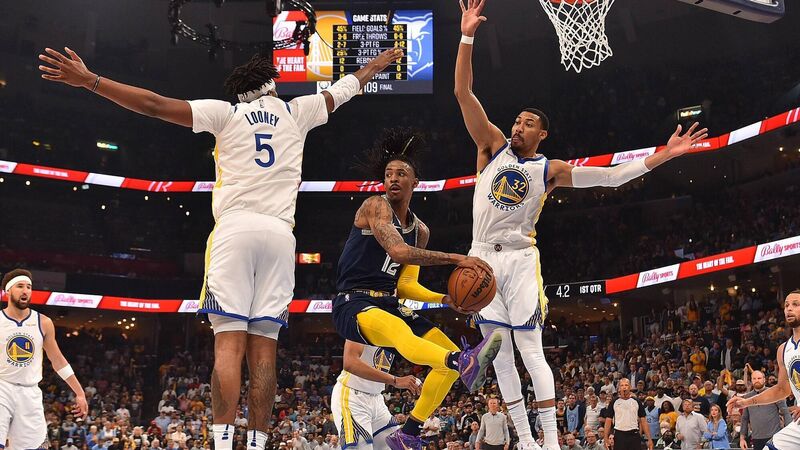John Riordan: Grizzly Warrior reflects on a career as a sports executive

The real deal: Ja Morant of the Memphis Grizzlies looks to pass against Otto Porter Jr. of the Golden State Warriors during Game Two of the Western Conference of the NBA Play-offs. The sides meet in Game Three this Saturday.
This weekend, Andy Dolich won’t know where to look. In the 90s, he spent a brief spell as President of the Golden State Warriors during a change of ownership. And then for most of the 2000s, he oversaw business operations as the NBA’s Grizzlies moved house from Vancouver to Memphis.
On Saturday in the Bay Area, where Dolich has spent most of his professional life, what is shaping up to be the most intriguing series of the NBA playoffs will land in from Memphis as two of his former teams square off in the third of a seven-game mini-marathon, effectively the semi-finals of the Western Conference and the quarter-finals of the whole thing.









